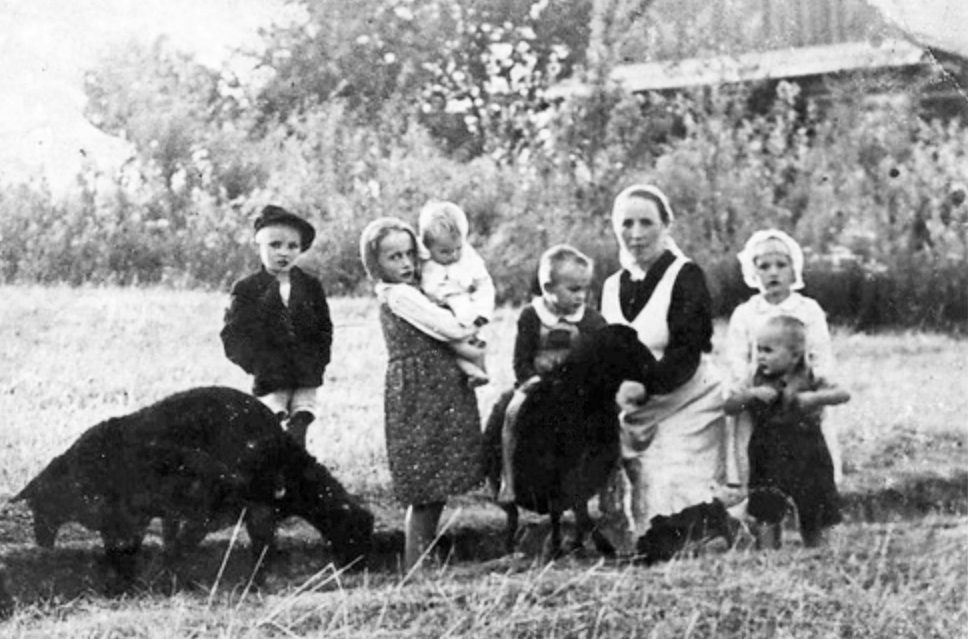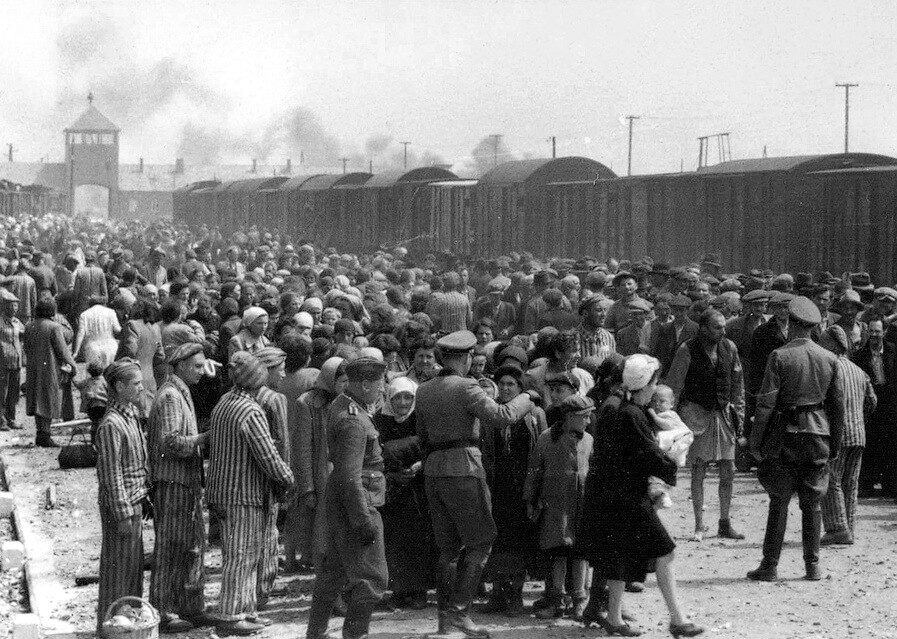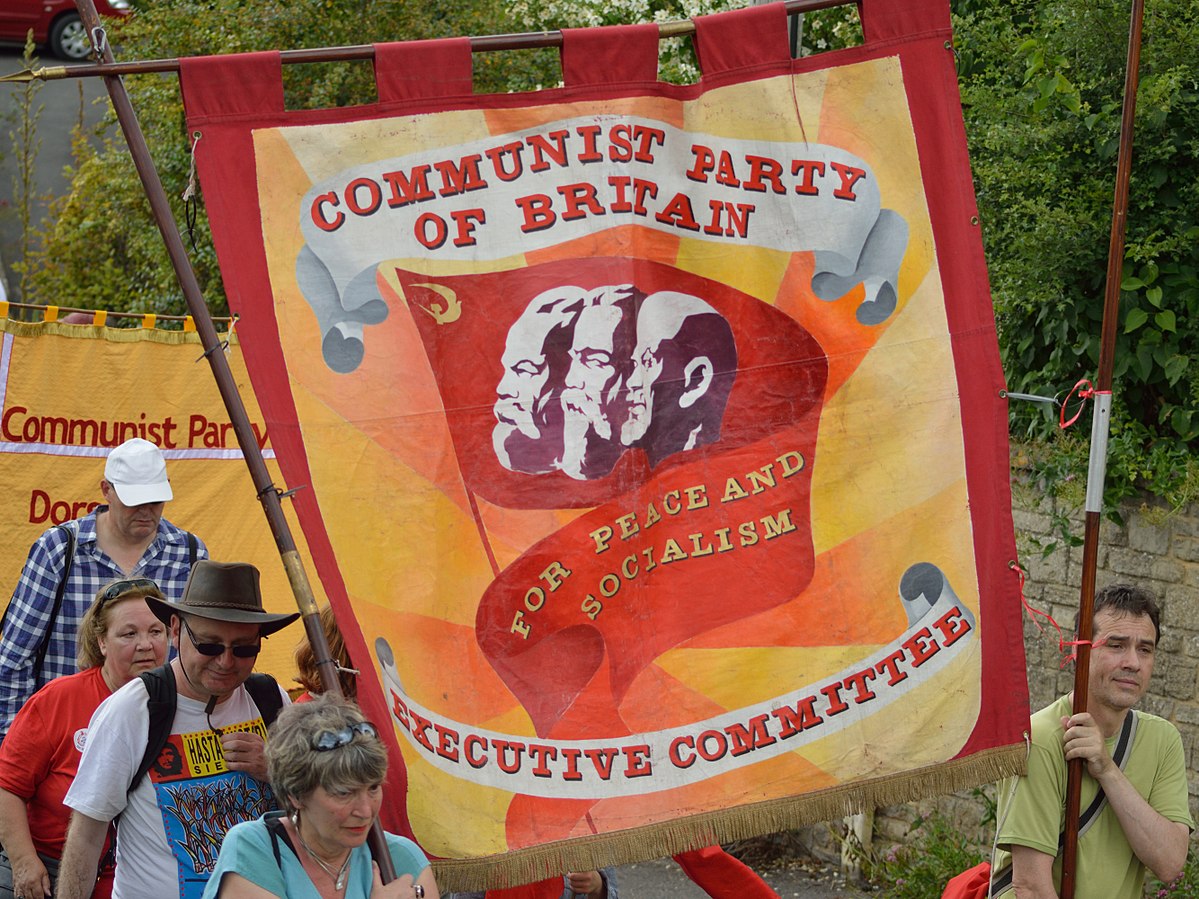The pinnacle of holiness – a remarkable Polish family murdered for helping Jews

RYSZARD GROMADZKI: The process leading to the beatification of the Ulma family is a unique one. For the first time, the Church is raising to the altar an entire family, one that was murdered by the Germans for providing refuge to Jews. Also for the first time, an unborn child will be among the blessed…
FATHER DR. WITOLD BURDA*: Certainly, the Ulma family’s beatification process is in many respects very special and original, in the good meaning of that word. The significance and novelty of this beatification lie primarily in the fact that it concerns an entire family. The Church has previously seen cases of couples being beatified together, such as the parents of Saint Thérèse of the Child Jesus, or the Italian husband and wife Luigi Quattrocchi and Maria Corsini. Now, a whole family will be beatified, including both parents and children – even a child still in the mother’s womb – all of whom suffered a martyr’s death. A beautiful definition of martyrdom was given by cardinal Semeraro, who is to announce the beatification of the Ulma family on behalf of Pope Francis: “In dying for faith in Christ, the parents and children achieved a ‘pinnacle of holiness.’” Let us recall here one of the key arguments for acknowledging the martyrdom of the children of Józef and Wiktoria. It concerns the beautiful tradition related to the Holy Innocents, the children murdered on the order of King Herod, as poignantly described by St. Matthew in the second chapter of his Gospel. Notice that even though those children were not aware of events and did not decide for themselves to give their lives for Christ, the Church nonetheless honors them as true martyrs. This tradition helps us to understand the death of all of the children of Wiktoria and Józef Ulma as an instance of martyrdom.
Another poignant feature of this story is the shared death of those professing the religion of Moses and followers of Christ. We are joined by faith in one God. That is a very special element of this beatification process. It is pointed out by Professor François-Marie Léthel, one of the consultors of the Dicastery for the Causes of Saints, in a beautiful reflection that he shared several months ago, indeed on the occasion of the liturgical Feast of the Holy Innocents. However, the most original element of the beatification of the Ulma family is that it includes the beatification of the seventh child, who at the time of the brutal execution at the hands of German gendarmes was still being carried in Wiktoria Ulma’s womb. This child has no name, is of unknown sex, did not come into the world in the natural way, nor was it born to a life of faith in a supernatural way at the moment of holy baptism. For the Church, this is above all a human person, a holy person, who already stands before God and represents within the Church of the praiseworthy and blessed the uncountable number of all children who died before birth, whether through natural causes or abortion.
Do you see the beatification of the unborn child of Wiktoria and Józef Ulma as a very powerful signal to the world, where after all we are dealing with a systematic attack, global in its reach, on the life of the unborn?
Yes, a beautiful, very clear and especially moving sign received by us from Divine Providence that first of all we should pause in this hurry that engulfs us from everywhere, and consider the mystery and sanctity of human life from the time of conception until natural death. I consciously use these two terms: the mystery and sanctity of human life. Life is our gift. This fact should incline us toward two attitudes. The first is the gratitude of the receiver of the gift toward the Giver – the Lord God – and the second concerns responsibility for the gift.
The drama that played out in Markowa on March 24, 1944, is so hugely charged with heroism, and I would also say, pure saintliness, that it raises the question: why is the beatification of the Ulma family taking place only now?
There are three issues that need to be emphasized here, one of which was the key argument clearly indicating the need to begin the Ulma family’s beatification process. What argument is this? Namely, among the residents of Markowa the Ulmas were considered from the start to be martyrs in faith, who indeed gave their lives in the name of faith in Christ and the duty to love one’s neighbor that follows from that faith. In turn, their persecutors were motivated by hatred for the faith professed by the Ulmas. We should recall here the eloquent testimony of the late Father Wincenty Kras, parish priest in Markowa from 1958. He thus arrived in Markowa fourteen years after the death of the Ulma family, and testifies explicitly that from the very start of his ministry in Markowa he encountered living remembrance among inhabitants of the village and their deep belief that the Ulmas had suffered a martyr’s death. Father Kras was witness to many conversations with his parishioners about what had happened on the morning of March 24, 1944, in the Ulma family’s home and garden. And therefore the belief in the Ulmas’ martyrdom existed in the Markowa community from the very beginning. A second issue that helps us understand why the Ulmas’ story was for many years not so widely known as it is today relates to the several decades of our country’s history after the end of World War II, that is, the period of communist totalitarianism in Poland. Let us remember that in that era the question of help given to Jews by Poles during the war was received in very different ways by the authorities of the time. Being aware of that fact, people did not boast publicly that they had given such help to Jews. Understanding of this context helps explain why the case was previously not publicized so widely. This does not mean that there were no initiatives in Markowa, Łańcut and surrounding areas to commemorate the Ulmas.

Here I must recall with particular gratitude another parish priest of Markowa, who has also sadly passed on, prelate Stanisław Leja, who told the story of the Ulmas to our new archbishop Józef Michalik when he took up the position in 1993. Archbishop Michalik listened to the story with great understanding, and with the theological and pastoral sensitivity that typifies him, encouraged the cultivation of the memory of the Ulmas and support for all initiatives at local level that would serve to express that memory. And finally, the third issue that should be mentioned in the context of the Ulma family’s beatification concerns the beatification process commenced earlier, in 1992, for 108 Polish martyrs of World War II, who were proclaimed blessed by Pope John Paul II during a Holy Mass in Warsaw on June 13, 1999. Because that process was already under way, it was not possible to add others to the list. Several days earlier, however, on June 7, 1999, in Bydgoszcz, the pope had made a moving appeal: “Our century has also written a great martyrology. […] The time has now come to remember all those victims and to pay them due veneration. And these are often unknown martyrs, like ‘unknown soldiers of God’s great cause,’ as I wrote in the apostolic letter Tertio millennio adveniente (no. 37). […] And I therefore regard it as a special duty of our generation in the Church to gather all evidence of those who gave their life for Christ. […] I ask all episcopates to attach due weight to this matter.” Not long afterwards, in response to John Paul II’s appeal, the Polish bishops and monastic superiors ascertained that there were still many other people who had lived beautiful and highly noble lives, and whose deaths bore the marks of martyrdom. Following an initial analysis, a decision was taken to include that group of presumed martyrs of World War II in the beatification process of seventeen victims of German terror from the Pelplin diocese, conducted by that diocese since 1994. This caused the beatification process to incorporate a second group of wartime martyrs, totaling 122 persons.
It should be added that in the course of the investigation, due to absence of the necessary evidential material, the size of that group of presumed World War II martyrs was reduced from 122 to 89. It is to this group that the Ulma family was added. We should also remember that in the times when Ignacy Tokarczuk, archbishop Michalik’s predecessor, was archbishop of Przemyśl, the pastoral goals were defined differently – attention was concentrated particularly on the creation of new parishes and the building of new churches to make it easier for the faithful to take part in the sacramental life of the Church. And although there were few beatification processes in our diocese at that time, the memory of such martyrs as the Ulma family always remained alive. This is proved by, among other things, the evidence given in the beatification process by a friend of Józef Ulma that as late as the 1980s he had visited the Ulmas’ grave and offered a prayer through that family. When he received the grace for which he had asked, he attributed it to the intercession of his friend and his family.
The role of Poles in saving Jews is often called into question nowadays by some Jewish circles. In the course of the family’s beatification process, were there any voices from those quarters questioning the Ulmas’ sacrifice?
Not at all. The attitudes or views of persons questioning the heroism of Poles who saved Jews during World War II did not pose any problem during the beatification process. There were no doubts expressed or any attacks from those circles relating to the martyrdom of the Ulma family. The clearest sign of the respect in which the Ulma family’s conduct is held in the Jewish community is the decision taken by the Yad Vashem Institute in Jerusalem in 1995 to grant to Wiktoria and Józef Ulma the title of Righteous Among the Nations. On the Yad Vashem website, among the accounts published there of people who have received that honorable title, the story of the Ulma family can also be found. In their presentation of the subjects of the upcoming beatification, the authors of the website write that the Ulma family has become a symbol of the “Polish martyrdom” suffered in connection with the Holocaust. This is an exceptionally telling statement. The topic also arose during a very interesting conference, organized in late June by the Catholic Information Agency and held at the Warsaw Archbishops’ Palace, titled “The Ulma Family: Memory and Testament.” At the end of the conference I requested the chance to speak and shared a reflection which I would also like to recall now. I believe that, in assessing the attitudes of Poles to Jews during World War II, the most important thing is to seek the truth together. This search for truth should be sincere, based on research, on reliable scholarly investigation and reflection, taking account of archive material and the testimony of eye-witnesses. It should all take place free of any ideology, without the discussion becoming heated. That is the first thing. Another issue which is sometimes overlooked, but which is key, concerns the question: who is responsible for the tragedy of World War II, and in consequence, for the persecution of the Jews? Who in January 1942, during a meeting at Wannsee near Berlin, took the decision on the “final solution of the Jewish question in Europe”? This is where the key lies. It was expressed in the heartless and unusually brutal law imposed by the German occupiers in the Polish lands. We are not speaking of any “Nazis,” but of German occupiers. This matter is also sometimes muddied, and we must underline it calmly and consistently, as these are the historical facts. Attempting to blur these facts leads to some absurd conclusions that we, the Poles, are responsible for the Holocaust. I would like to refer here to a very valuable work by Professor Bogdan Musiał from 2019, containing a penetrating analysis of the law in force during the German occupation, titled “Who Will Help the Jew.” That study leaves not a shadow of a doubt who was responsible for the drama of the Holocaust, that is, the extermination of the Jewish people in the time of World War II. We should add that from 1941 onward, and only in the German-occupied lands of the Soviet Union, Yugoslavia and Poland, there was a law prescribing the death penalty for hiding Jews. But it was only in Poland that this law was enforced in such a brutal manner, against specific people, their relatives, and even random passers-by. Seeing that despite these exceptionally brutal repressions they had not broken the Polish spirit, where the deepest motivation was the love of one’s neighbor that flowed from belief in Christ, a year later the Germans introduced an even more draconian law in the occupied Polish lands, allowing the death penalty just for having information about Jews in hiding and failing to disclose it. And this penalty was indeed exacted, if a Pole failed to report the fact that Jews were hiding somewhere. And the final thing that is hardly ever said aloud: we cannot judge in our own categories the behaviors of those who were often faced with tragic dilemmas during the German occupation. We must enter the spirit of those extremely difficult times with deep reflection.

It is only then, presumably, that one can try to understand the people who decided to allow or not to allow persecuted Jews to come under their roof…
I will repeat words that I spoke on June 28 during the meeting at the Warsaw Archbishops’ Palace: I am the last person who would have the moral right to judge the wartime conduct towards Jews of those of my fellow Poles who did not behave so heroically as the Ulma family. One of the things that confirmed me in this view of the matter was an event that occurred during a conference in Przemyśl in March 2018, organized by our diocese and the Institute of National Remembrance. There, I was giving a paper on the theological interpretation of the Ulma family’s martyrdom. Several times in my speech I referred to the Ulmas as the “Samaritans of Markowa,” alluding to the fact that the allegory of the good Samaritan was found underlined in the family’s Bible. When I had finished speaking, Professor Bogdan Musiał took the floor. Addressing me and other members of the audience, he said: “Father, you described the Ulmas as the Samaritans of Markowa,” at which he paused. “Please notice,” he went on, “that the Samaritan of the Gospel risked nothing in helping the unfortunate traveler, whereas the Ulma family risked everything, and for that reason too are therefore worthy of beatification.” “My grandfather Jan,” Professor Musiał went on, “once found himself during wartime in a situation similar to that of the Ulmas. Some Jews of his acquaintance, including a small child, knocked at his door and asked him for help. My grandfather said: I will give you food, clothing, money, as much as I can, but understand that I won’t take you into my house, because they might murder my family.” The professor looked at the packed auditorium of the Przemyśl seminary and said: “If my grandfather had taken in those Jews, I might not be standing before you today…” After those words, a poignant and telling silence fell over the hall. On March 26 of this year, on the “Unfinished Conversations” show broadcast on Telewizja Trwam and Radio Maryja, in which Professor Musiał and I had the opportunity to participate, he returned to that story and added an extra detail. He admitted that his grandfather had said that he often dreamed of the Jews who had knocked on his door, especially the child. “My grandfather often asked whether he had done the right thing in that situation,” the professor recalled. We today, living a peaceful life, often make judgments to which we have no moral right. That path does not lead to truth. As far as Markowa is concerned, we should remember that there were about ten other families besides the Ulmas who also hid Jews. None of them threw those Jews out even after the Ulmas’ brutal execution. Thanks to those families of Markowa, whom I personally call “giants of humanity and faith,” 21 Jews survived the German occupation in Markowa. I would also add that the elder of Markowa, Teofil Kielar, having been summoned by the Germans to organize a group of men with spades to dig a grave for the shot victims, on arriving at the execution site some minutes later and being shocked by the sight of the dead children of Józef and Wiktoria, asked the commander of the German gendarmerie in Łańcut, Eilert Dieken, why they had killed the children. His cynical reply came: “So that the village wouldn’t have a problem with them.” And the gendarme Joseph Kokot, known for his exceptional brutality toward Jews and Poles, called by locals the Devil of Łańcut, added: “You’re lucky that no one lives close by here.” It is horrifying that they were quite prepared to murder more innocent people.
Father, has your participation in the Ulmas’ beatification process, which involves becoming deeply immersed in their lives, changed your own life?
I experienced exceptional grace, having the opportunity to get to know and make friends with that extraordinary family. Endearing in their simplicity and beauty, founded on faith in the Lord Jesus and the love for one’s neighbor that flows from that faith. This was their everyday ethos, which led to the heroic decision, probably taken in late 1942, to take eight Jews under their roof. I often picture the Ulmas’ happy home, filled with joy and the laughter of children, warmth and cheerfulness from Wiktoria, who was always kind and open to the needs of others, in spite of having so many everyday cares and duties in caring for her family and home. Wiktoria was like that because she enjoyed the sense of safety and support given by Józef, a mature husband, father, and Christian. The opportunity to take part spiritually in the daily life of the Ulma family, to breathe the atmosphere of that home, has been – please believe me – an exceptional honor and grace. The Ulma family was characterized by kindness, modesty, and selflessness. I pray through them every day that those qualities might also build me as a person and as a priest. All of us can also learn from the Ulmas the quality of steadfastness, in terms of remaining faithful to a decision once taken. They lived by the word of God; they were obedient to Him. This was the source of their deepest intentions, their decisions, and all of their actions. The Ulmas very much wanted to live; they trusted that they would survive to see the end of the war. Moreover, I carry deep in my heart Józef’s answer to the words of his relatives and friends who warned him: “Józef, don’t keep Jews, because it will lead to trouble.” He would always repeat: “They are people too. I won’t throw them out of my house.” Just as in their lifetime the Ulmas’ hearts and home were always open to others, I know that now too they are listening intently to our needs. I experience this personally every day. I don’t claim any credit, but I consider myself only the first to receive this gift, for which I am especially thankful to the Lord God.
* Father Dr. Witold Burda is the initiator of the process of beatification and canonization of the Ulma family
This article was published in “Do Rzeczy” weekly magazine in August 2023




